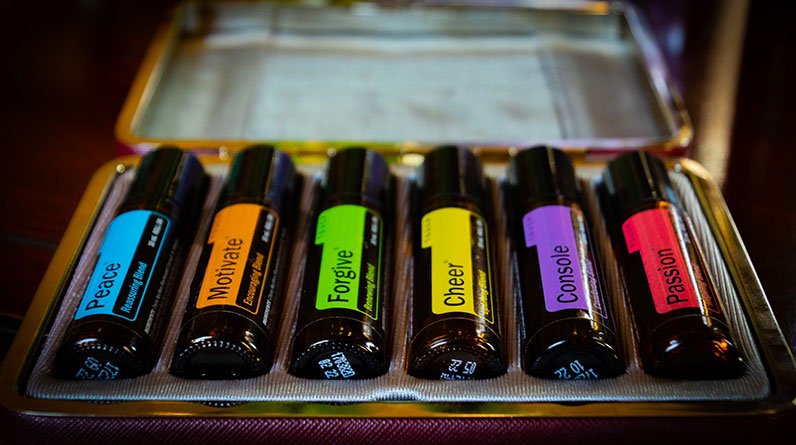
Mental Clarity and Focus
If you’re feeling scattered and overwhelmed, using essential oils for mental clarity can help you stay focused. They’re effective because they pass quickly into the limbic system in your brain that regulates emotions, memory, and concentration.
You can use these oils in a diffuser, add them to your bathwater or apply them topically. The key is to choose the right ones, and be sure to buy quality essential oils.
Peppermint
Peppermint oil is a powerful essential oil that helps you to focus and stay alert. It is believed to stimulate the hippocampus area of the brain that controls learning and memory, which makes it an excellent choice for those who want to improve their concentration.
This versatile essential oil can be diffused, or applied topically to relieve a number of health issues and concerns. It can be used to freshen breath, help alleviate nausea and stomach aches, clear congestion, quiet headaches, tackle PMS symptoms, soothe colds and cough, and reduce food cravings.
A powerful anti-inflammatory and analgesic, peppermint essential oil can also be used to relieve sore muscles. It’s also a natural mice, bug and lice repellent.
The menthol in peppermint essential oil helps to relax the body, reduce tension and relieve stress. It can be used in an aromatherapy diffuser or a few drops of this oil placed into a warm bath to ease stress, anxiety and restlessness.
It can also be taken as a supplement to boost energy levels, increase focus and help you feel more awake during the day. Simply apply a few drops of this essential oil to your pulse point, and inhale for a burst of mental clarity.
This essential oil can be used as an alternative to caffeine for increasing energy and improving mental clarity. It’s also useful in treating eczema and psoriasis. However, it is important to use this oil with caution, especially on sensitive skin, and perform a patch test before rubbing it on inflamed areas.
Peppermint essential oil can be diluted in a carrier oil before applying to the skin. It is also a natural anthelmintic, meaning it can be helpful for those who are experiencing digestive problems like diarrhea and vomiting. It can also be used as a lubricant for massages to soothe sore muscles and relieve tension.
Basil
Basil essential oil is one of the most popular herbs for mental clarity and focus. It has been shown to lower fatigue, anxiety, stress, and nervousness, enhance memory, increase energy, and fight inattention. It is also an excellent remedy for a variety of physical ailments such as muscle spasms and rheumatism.
The oil is extracted using steam distillation, which ensures that the plant’s medicinal properties are present in the oil. It is commonly used for aromatherapy and can be diffused throughout the home, or applied topically to the skin.
As with all essential oils, it is important to understand the chemotype of the oil that you are purchasing. Some chemotypes are more harmful than others and can cause side effects when taken in high doses.
For example, eugenol is a known carcinogen, so be sure to choose a chemotype with less of this compound. The linalool chemotype of basil is often considered safe, as this chemotype contains low levels of estragole (methyl chavicol).
In addition, basil essential oil has been found to reduce feelings of sadness and anxiety. This is because of its linalool content, which affects the brain’s monoaminergic system. The monoaminergic system includes neurotransmitters like serotonin, dopamine, and norepinephrine.
Aside from being a great aromatherapy oil, basil is also a fantastic natural mosquito repellent and can be used as a cooling agent for the skin. It can also be added to a bath before bedtime to help you relax and fall asleep.
Another great way to use basil essential oil is to add it to a diffuser. It can be paired with other essential oils such as Lime, Bergamot, and Peppermint to create an invigorating aroma that can improve your mood.
When diluted properly, it can be used to help reduce tension, boost mental clarity, and encourage focused work. In fact, it has even been shown to help people with Alzheimer’s disease improve their cognitive abilities.
It’s easy to find basil essential oil in many health and beauty stores. Be sure to dilute it with a carrier oil before applying to the skin. It is also a good idea to test it on a small area of the skin first to ensure that it won’t irritate sensitive areas.
Lemongrass
Lemongrass essential oil is a powerful herbaceous, citrusy scent that’s often used for aromatherapy to help relieve stress and anxiety. It also helps stimulate the mind and boost focus. You can diffuse lemongrass in your home or apply it to your skin as a massage oil.
It has antimicrobial and anti-inflammatory properties that can alleviate headaches, stomachaches, and indigestion. It also has a calming effect and is useful in treating muscle pains due to exercise. It can also be used to treat rheumatism and menstrual cramps.
Since it’s high in citronella, lemongrass essential oil is also a natural insect repellent. Using it before going on outdoor adventures is an effective way to keep insects away from your family and home. It can also be diffused to help with anxiety and mental fatigue.
In addition, lemongrass is known to lower bad cholesterol levels in the body and regulate triglyceride levels. It also promotes blood circulation and enables the body to expel toxins through sweating.
This makes it a great choice for anyone looking to improve their mental health and prevent depression. It also helps relieve stress, anxiety, and irritability.
It’s safe for the majority of people to use as a topical massage oil, but it should be diluted with a carrier oil such as jojoba or coconut oil before applying it to the skin. It’s also a good idea to test it on a small area of your skin before applying it to the entire body, as it can be highly irritating to sensitive skin.
You can diffuse lemongrass essential oils to add a refreshing aroma to your home. You can even store a few drops in your car spritzer to eliminate stale air inside the vehicle and create an energizing mood.
If you’re pregnant or nursing, it’s best to consult with your doctor before using lemongrass oil as a supplement. It is also important to keep your essential oils in an area that’s not accessible by children, infants, or pets.
Orange
Orange essential oil is known to lift mood and reduce stress, making it a great choice for calming down your mind. It can be used in a diffuser to fill your home with a fresh, zesty aroma or applied topically for skin and respiratory health benefits.
One of the most common uses for orange essential oil is in cleaning products and cosmetics, due to its antibacterial properties. However, it also offers a wide range of other health and wellness benefits, from anticancer properties to pain relief.
The oil is a powerful carminative that relieves excess gas in the stomach and intestines, which can lead to abdominal discomfort, indigestion, and even heartburn. It is also beneficial for digestion, boosting immunity, and treating constipation.
Studies have shown that limonene, a component of orange oil, can inhibit the growth and promote cell death in some cancer cells. This may be especially helpful for people who are suffering from cancer, as it can help prevent the spread of the disease and increase the body’s natural ability to fight off cancer-causing agents.
Inhaled orange essential oil has also been found to reduce anxiety and depression. For example, it has been found to reduce the levels of stress hormones in children undergoing dental procedures and women in labor.
Using orange essential oil can help you focus on your tasks and stay motivated. It also can help you relax and reduce anxiety that may interfere with your work.
It can also boost your energy and motivation if you’re feeling depressed, bringing more clarity to your thoughts and helping you feel better overall. It can be combined with other oils to create an uplifting aroma that will help you concentrate on your goals.
When choosing an essential oil, be sure to choose one that is labeled for topical use only and is properly diluted. Full-strength oils can cause stinging, irritability, and skin irritation. Diluting the oil with a carrier oil such as coconut or jojoba before applying can help to prevent this from happening.
Avoid exposing your skin to sunlight after applying essential oils, as they are sometimes phototoxic. To prevent this, it’s best to use dark bottles and to store essential oils away from light.
In conclusion, essential oils can be a powerful tool for mental clarity and focus. Orange essential oil is great for lifting mood and reducing stress, while lemongrass essential oil helps relieve stress and anxiety. Basil essential oil is popular for its ability to lower fatigue, anxiety, stress, and nervousness, and peppermint oil helps to stimulate the area of the brain that controls learning and memory. By incorporating these essential oils into your routine, you can unlock your potential and experience increased mental clarity and focus.
